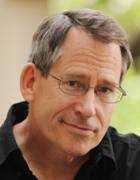John Preskill
| John Preskill | |
|---|---|
 | |
| Born |
January 19, 1953 Highland Park, Illinois |
| Residence | Pasadena, California |
| Citizenship | United States |
| Nationality | American |
| Fields | Theoretical Physics |
| Institutions | California Institute of Technology |
| Alma mater |
Princeton University (B.A.), Harvard University (Ph.D.) |
| Doctoral advisor | Steven Weinberg |
| Doctoral students |
Peter Galison Daniel Gottesman Anton Kapustin Sandip Trivedi |
| Known for | Thorne-Hawking-Preskill bet |
John Phillip Preskill (born January 19, 1953) is an American theoretical physicist and the Richard P. Feynman Professor of Theoretical Physics at the California Institute of Technology (Caltech).
Preskill was born in Highland Park, Illinois. After earning an B.A. in physics at Princeton University, summa cum laude, in 1975, he received his Ph.D. in the same subject from Harvard University in 1980. His graduate adviser at Harvard was Steven Weinberg.
While still a graduate student, Preskill made a name for himself by publishing a paper on the cosmological production of superheavy magnetic monopoles in Grand Unified Theories. This work pointed to a serious problem in the then current cosmological models, a problem which was later addressed by Alan Guth and others by proposing the idea of cosmic inflation.
After three years as a junior fellow of the Harvard Society of Fellows, Preskill became Associate Professor of Theoretical Physics at Caltech in 1983, rising to full professorship in 1990. Since 2000 he has been the Director of the Institute for Quantum Information at Caltech. In recent years most of his work has been in mathematical issues related to quantum computation and quantum information theory.
Preskill has achieved some notoriety in the popular press as party to a number of bets involving fellow theoretical physicists Stephen Hawking and Kip Thorne. Hawking conceded the Thorne–Hawking–Preskill bet in 2004 and gave Preskill a copy of Total Baseball, The Ultimate Baseball Encyclopedia.
External links
 Media related to John Preskill at Wikimedia Commons
Media related to John Preskill at Wikimedia Commons- Preskill's Caltech homepage
- Institute for Quantum Information at Caltech